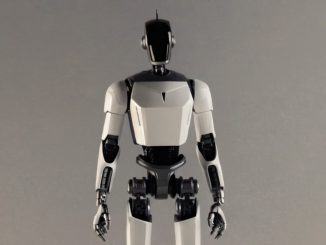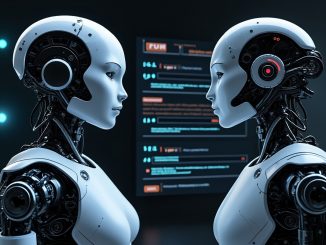Michael Levin says the future of the human species should involve improvement of the human form and freedom of embodiment, "I'm not particularly tied to this form. I don't see why anybody should be." pic.twitter.com/Vp8xZqfEhX
— Tsarathustra (@tsarnick) October 12, 2024
In a thought-provoking episode of The Cognitive Revolution, Michael Levin, a renowned biologist and philosopher, challenged conventional notions of human evolution and identity. Levin’s provocative statements paint a picture of a future where human beings are not bound by their current physical and cognitive limitations, but instead have the freedom to choose and modify their embodiment.
Levin argues that the idea of our current human form being the pinnacle of evolution or divinely ordained is outdated. He encourages listeners to envision a future where ailments like lower back pain, astigmatism, and limited lifespans are relics of the past. This vision extends beyond mere physical improvements, encompassing cognitive enhancements that could potentially transcend our current intellectual boundaries.
The concept of “freedom of embodiment” is central to Levin’s argument. He posits that in a mature society, individuals should have the right to exist in whatever form they choose, rather than being constrained by the random genetic lottery of birth. This radical reimagining of human rights challenges our current understanding of identity and raises profound questions about the nature of consciousness and personhood.
Levin’s perspective on replacement is particularly intriguing. He acknowledges that replacement is an inevitable part of evolution and generational change. However, he urges us to consider what we want to be replaced by. Rather than clinging to our current form, Levin suggests we should aspire to create magnificent agents with enhanced freedom, creativity, exploratory instincts, and compassionate values.
The biologist’s vision extends beyond Earth, contemplating what should populate the universe. He dismisses the idea that humanoid beings with our current DNA are the optimal choice for cosmic expansion. Instead, he advocates for entities that embody our highest ideals and values, regardless of their physical appearance.
Levin’s detachment from our current human form is evident in his statement, “I’m not particularly tied to this form in the slightest. I don’t see why anybody should be.” This sentiment challenges deeply held beliefs about human identity and opens up a vast array of possibilities for our species’ future.
These ideas, while revolutionary, also raise complex ethical questions. How do we navigate issues of identity, equality, and human rights in a world where physical form becomes a choice? What are the societal implications of such radical body autonomy? These are questions that Levin’s vision compels us to grapple with as we stand on the precipice of unprecedented technological advancements.
Ultimately, Levin’s perspective invites us to broaden our imagination about what it means to be human and what our species could become. It challenges us to think beyond our current limitations and envision a future where the boundaries of human potential are dramatically expanded.
- Bulenox: Get 45% to 91% OFF ... Use Discount Code: UNO
- Risk Our Money Not Yours | Get 50% to 90% OFF ... Use Discount Code: MMBVBKSM
Disclaimer: This page contains affiliate links. If you choose to make a purchase after clicking a link, we may receive a commission at no additional cost to you. Thank you for your support!





Leave a Reply